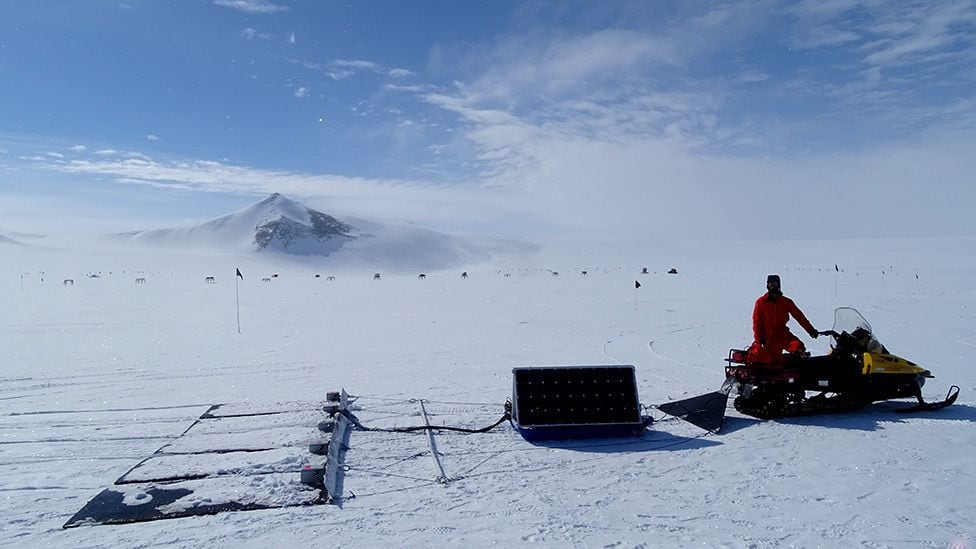To musí Být luxusní hledačka, člověk si jede na skútru, a když má signál seskoci a jde dohledavat...... S brokospodky a jiným smetím si tam jistě hlavu nelamou 
Searching for meteorites in Antarctica
Categories: Finds and rescue research abroad , Nálezy nejenom s detektorem ve Skandinávii
Scientists will search for rare meteorites in Antarctica. The British expedition hopes to find at least a few pieces. Their exploration will take six weeks. The area of perpetual ice and cold, equipped with a special metal detector. Specifically, they're looking for meteorites called Siderites. They usually contain 20 percent iron and nickel.
NASA estimates that several thousand meteorites hit the ground each year, but many of them are not physically traceable. Most end up in the ocean, the sea or other hard-to-reach places. "We search for meteorites because it's a way to find out how bodies form in space. We also still have a lot of unanswered questions about the history of the solar system," said Katherine Joy from the University of Manchester, who is leading the expedition searching for meteorites in Antarctica.
Most meteorites have recently been found in Antarctica, where conditions are ideal for finding them. The melting of the ice brings them to the surface, where they can be seen from a distance because of their dark colour. This gives scientists a chance to find meteorites that fell to Earth a few years ago.
However, the mission may well fail and the scientists may return home without a single meteorite. Most will melt and evaporate as they pass through the Earth's atmosphere. Those that do hit the ground are molten. They can sink so deep into the ice that even the current melting of the glaciers won't help. "We have equipped ourselves with a special metal detector and hope to find something. We've been preparing really carefully," Joy noted.
They have a special metal detector mounted on a snowmobile. So they can search a really large area of several square kilometres. The expedition's goal is to bring home at least five meteorites to the UK.
The search team has five members. They will begin their exploration southeast of the Weddell Sea, which is part of the Southern Ocean. With a metal detector mounted behind a snowmobile, they can explore a ten-metre-wide ice shelf. Mathematician Andrew Smedley, from the University of Manchester, has helped colleagues map out, through a special model, where the meteorites might have landed. That is, where most of them might be. Now the science team is putting the finishing touches to the expedition.

Source: https://wellstonjournal.com/ , www.bbc.com
The article is included in categories:
- Archive of articles > Archaeology > Finds and rescue research abroad
- Archive of articles > Archaeology > Finds and rescue research abroad > Nálezy nejenom s detektorem ve Skandinávii
Post
juuj hned by som isiel meteory su fajn 
Zajímalo by mě, jak to pak z toho ledu chtěj dolovat. Asi vrtačka a dynamit.
Dom..... Já bych na to šel nějakým horkovzdušným fukarem





